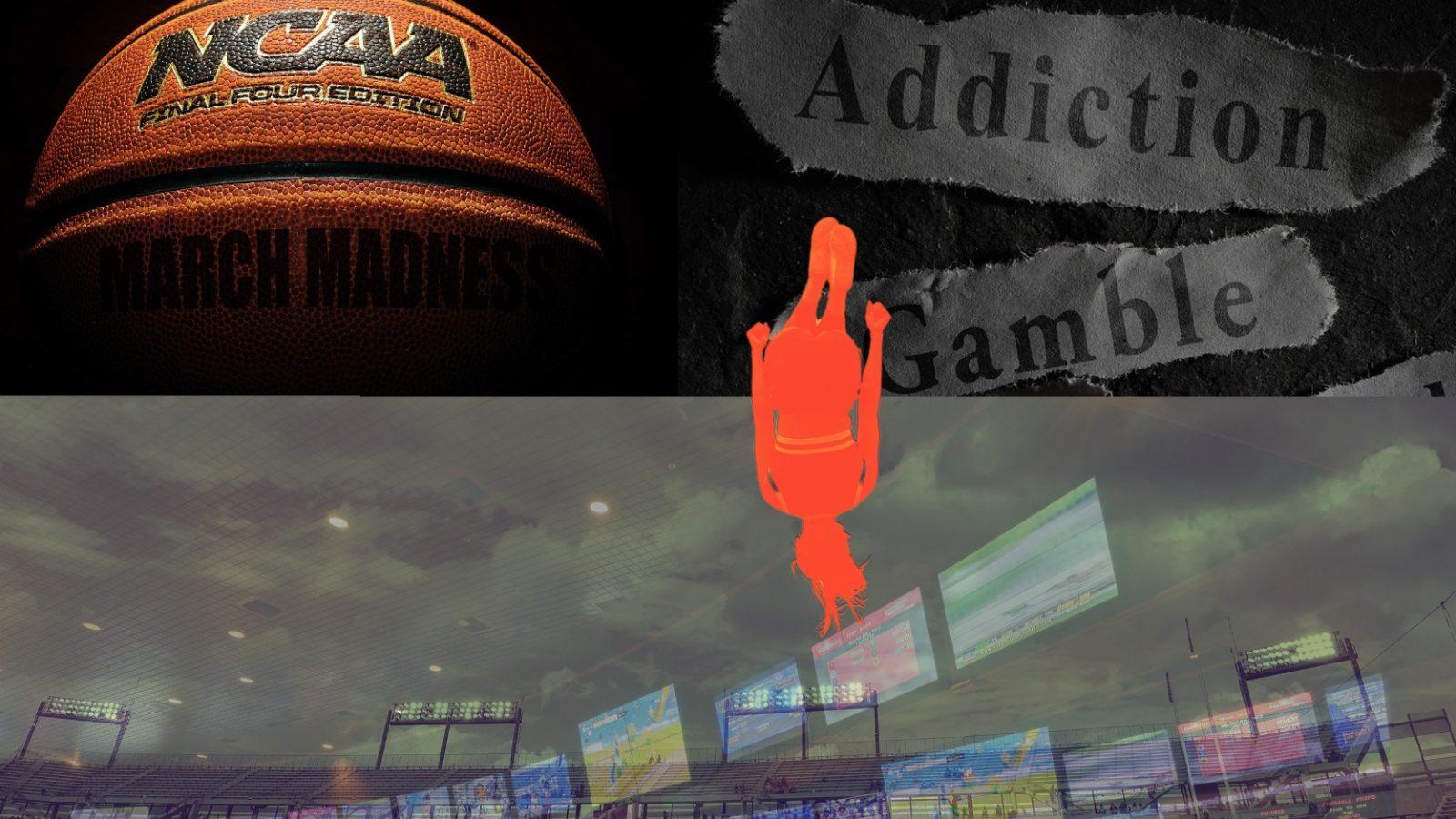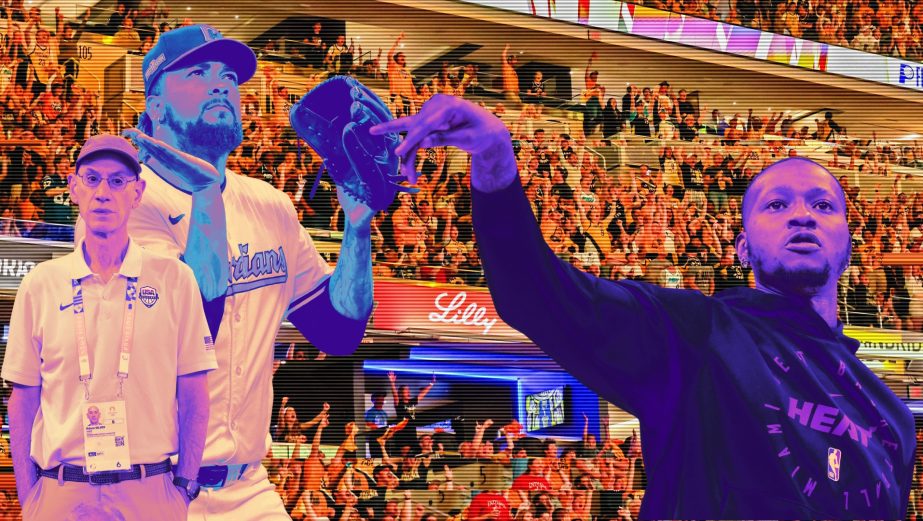Joshua Shuart posed a simple but revealing question to his sports management class in February. The Sacred Heart University professor was curious how many in this group of betting-age upperclassmen planned to wager on the Super Bowl.
“I think pretty much every hand in my class went up, regardless of gender,” Shuart told InGame. “I’ve talked to a kid who was betting on every pitch of the World Series, miles per hour, 93.5, higher or lower.
“It’s legal here [in Connecticut], but you’ve put the cart before the horse where you haven’t addressed maturity, addiction possibilities or issues and all the ease of technology.”
Any student-athletes with a hand up in that class would have been admitting to an NCAA violation. On Nov. 22, if the NCAA follows through with a controversial change to its gambling policy, they will be all clear to bet on the Super Bowl or World Series, just not college sports.
That’s not a good idea, either, Shuart said.
“Absolute con,” Shuart said of his opinion allowing this change. “It’s a gateway, just like everything else. Like, ‘Hey, you can bet on pro sports. You think you’re not going to now be betting on college and then you’re going to be betting on maybe your own sport?
“Maybe not your team, but it’s just an absolute gateway to disaster. I don’t know who thought that was a good idea either.”
Rule change comes amid flurry of revelations
NCAA men’s basketball has been quaked by gambling scandals recently, with the governing body on Friday announcing the revocation of eligibility for six players for conspiring to throw games, shave points or manipulate prop bets.
Scheming to fix college games and betting on pro games are completely different issues. But the commonality is a student population of an age that is particularly vulnerable to problem gambling, according to studies. And questionable decisions. Making a questionable decision could soon involve sliding a college football leg into an NFL parlay and ruining a lucrative Name, Image, Likeness (NIL) deal.
“It’s hard to be an athlete right now,” Dr. Jared Pincin, an economics professor at Cedarville University, who has co-authored papers on gambling ethics and economic impacts, told InGame. “You have a sportsbook in your pocket.
“And let’s just be honest, none of us make great decisions when we’re 18, 19, 20, compared to when we’re 30, 40, 50. And so I think it’s just a dangerous mix that we have here.”
Is the new NCAA rule policeable?
Policing the new rule figures to be difficult. The sprawling 2023 sports betting scandal involving at least 35 athletes at three Iowa colleges demonstrated the difficulty in coordinating sportsbooks, regulators and policing agencies at a time when all betting by student-athletes and staff was forbidden.
Unless the NCAA and this entire cohort work proactively to collate the names and accounts of the roughly half million student-athletes in the United States, then block them from wagering only college games, Pincin imagines that student-athletes will inevitably add college outcomes to multi-leg parlays. Shuart agrees there will be mistakes made that are not necessarily driven by ill intent. Iowa athletes who faced prosecution and the loss of scholarships in 2023 bemoaned a lack of education on NCAA betting rules.
With mobile and retail sports betting scheduled to launch in Missouri on Dec. 1 — including wagering on in-state college teams — the University of Missouri has implemented mental health initiatives for student-athletes.
Pincin said that allowing student-athletes to bet on some sports may make policing the new rule more difficult than when there was a total prohibition on wagering.
“People ask, ‘How do you monitor this?’ ” he said. “If it’s just, ‘You can’t gamble,’ it’s an easier monitor than if you say, ‘You can gamble on this, but not that.’
“And what makes this even harder is the introduction and the explosion, really, of parlay bets, which can include pro and college. So now you’re saying, ‘OK, seven of my 10 legs are on pro sports, three are on college.’ How are you monitoring that versus you just can’t gamble as an athlete? That’s pretty black and white. So I do think it’s actually making it harder to monitor if they introduce this.”
Shuart agrees.
“There’s no one entity — whether it be the NCAA, the NBA, whatever — that can truly monitor this and police it correctly and enforce it,” he said. “I think the [the NBA] learned the hard way, thinking, ‘We have our rules and no one’s going to break them.’ Look at all these federal agencies that have been involved in [the Jontay Porter/Terry Rozier sports betting investigation]. We still don’t have any idea what’s really going on and how deep this is.”
Matthew Wein, a national security and technology strategist, thinks the NCAA ceded ground for selfish purposes.
“I understand why they did it. They did it for self-serving reasons,” he told InGame. “They didn’t think that they could enforce any of the rules or truly monitor in a meaningful way. And so their response was to just wash their hands of it rather than look foolish and not being able to enforce the rules.”
NCAA’s path to change, pushback
Since 2023, student-athletes have been forbidden to bet on any sports, but in October the NCAA Division I Board (and subsequently its Division II and III counterparts) voted to allow them to wager on pro events. The implementation date was set at Nov. 1 before a hail of criticism led to the date being pushed back to Nov. 22.
Pincin said the timing of the unsealing of indictments against former Miami Heat player Rozier on Oct. 23 likely impacted the NCAA’s decision to move back the implementation date. So did, he said, a raft of negative reaction, including a strong rebuke from SEC Commissioner Greg Sankey, who wrote in an open letter to the NCAA: “If there are legal or practical concerns about the prior policy, those should be addressed through careful refinement — not through wholesale removal of the guardrails that have long supported the integrity of games and the well-being of those who participate.”
Congress wants a word, and U.S. Congressman Brett Guthrie (R-Alabama) signalled his intentions to investigate the rule change.
The new implementation date is one day after the end of the NCAA rescission period, which is a window for member schools to vote down proposals that received less than 75% support in the Division I Cabinet. The vote on the gambling rule fell short of the threshold.
“I think part of it’s going to depend on what Congress does,” Pincin said. “If Congress steps in and has concerns, it’s possible that this doesn’t go through, or that even if it goes through, that it gets revised at a later date.
“There’s just a lot of unknowns, and I try not to make predictions on these things because I’m not in those rooms, but given the current landscape, I would imagine that they’ll be a little more cautious.”
If not, Shuart said, expect carnage.
“Maybe there’s certain entities clinging on for dear life and maybe saying, ‘Well, maybe if we open up this can of worms, maybe things will settle down for a little bit.’ ” he posited. “But I think you’re just increasing the carnage that’s going to happen when this law comes crashing down. I think it’s one of the absolute worst things.”






